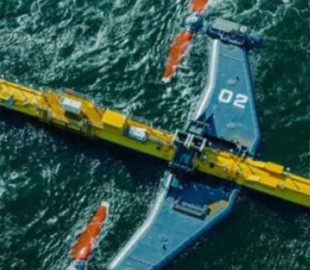
The world's most powerful tidal turbine O2 can provide electricity to 2,000 British homes using the sea waves.
Researchers from the University of Plymouth in Great Britain have conducted extensive research around Orbital Marine Power's most powerful O2 tidal turbine, discovering how its efficiency can be improved. Interesting Engineering writes about it.
It is reported that the 74-meter O2 tidal turbine is located in the Orkney Islands in Scotland and includes two rotors with a blade diameter of 20 meters. It has a capacity of 2 MW and can provide electricity to 2,000 homes in Great Britain. It is currently the most powerful tidal turbine in the world.
The researchers set out to understand how tidal currents, the speed of which exceeds eight knots, affect the performance of the system. They used drones and boats to map the complex tidal currents encountered by the turbine, as well as study its effects on other turbines downstream.
200% Deposit Bonus up to €3,000 180% First Deposit Bonus up to $20,000As a result, the research participants got an idea about the optimal placement of tidal turbines to generate more energy. The research findings will help the team plan and deploy future tidal energy harvesting systems along the UK coast
“This research demonstrates the benefits of combining scientific knowledge and the introduction of new technologies, enabling significant progress in understanding dynamic tidal environments.” , — said UHI Shetland Senior Researcher Sean Fraser.
As the demand for cleaner energy sources grows, wind and solar farms are in high demand, according to the paper. However, both of these technologies cannot provide stable generation because they depend on weather changes.
In turn, systems that use tidal energy are stable and predictable. At the same time, their implementation is slow and accompanied by a number of complex tasks. Currently, the technology is in an experimental stage and requires large costs for scaling. Solutions for connecting tidal energy to the grid are still under development.

